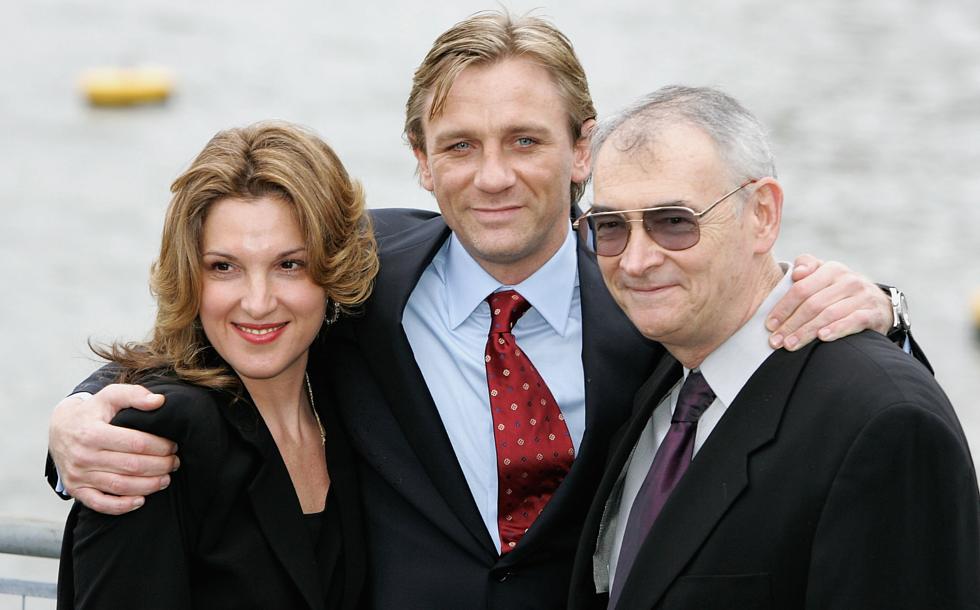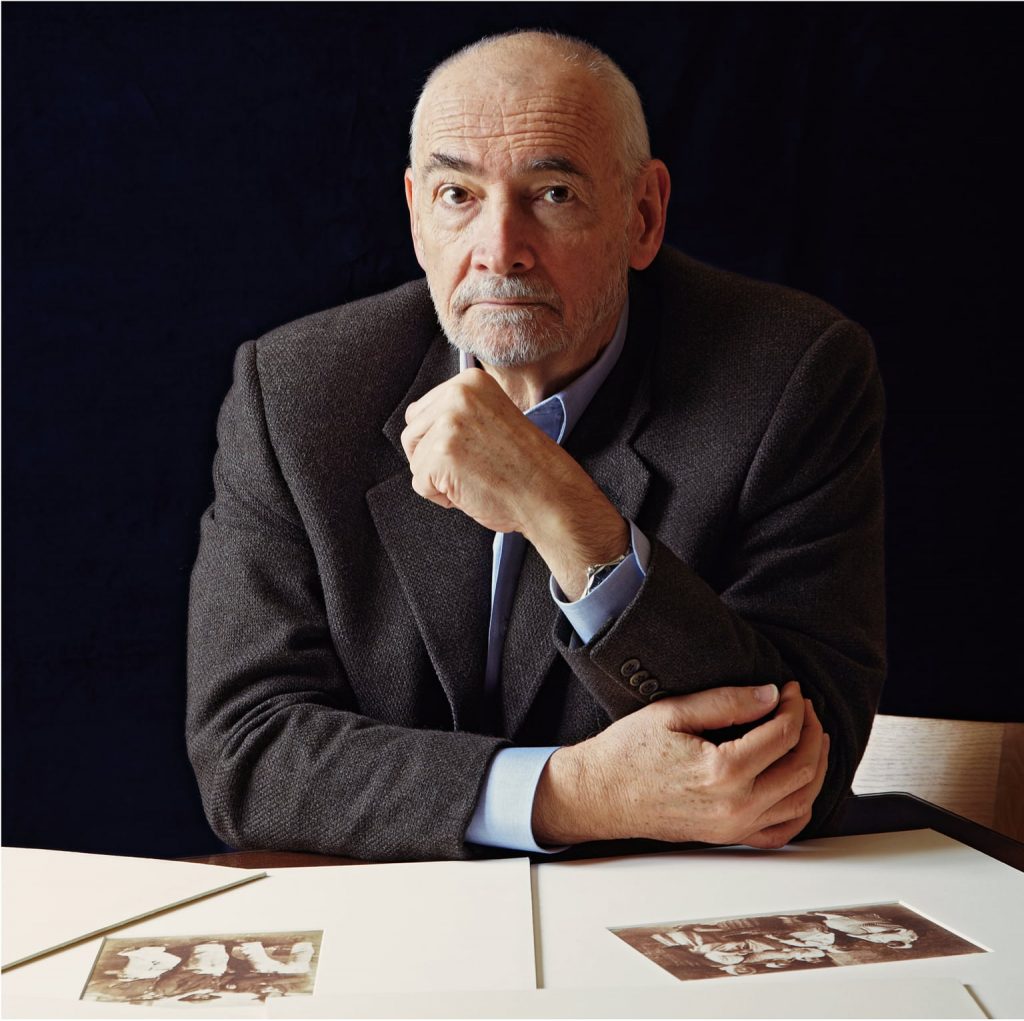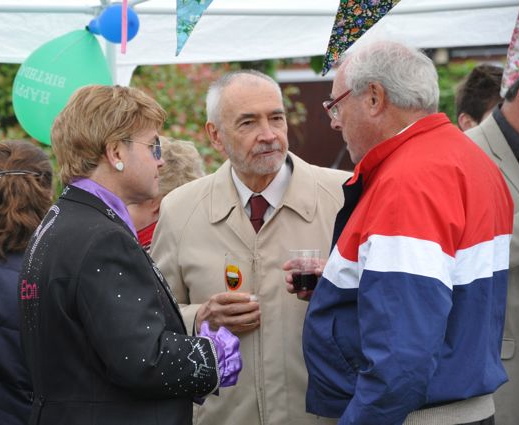 In this, Part Two of Producer Michael G. Wilson`s Interview with Steve Biodrowski, Wilson answers the questions most appealing to Bond insiders in this second half of a discussion with Fandom/Forever.
In this, Part Two of Producer Michael G. Wilson`s Interview with Steve Biodrowski, Wilson answers the questions most appealing to Bond insiders in this second half of a discussion with Fandom/Forever.
WHAT WOULD IAN FLEMING SAY TODAY?
I guess he`d say, `Wow, I can`t believe it`s still going on.`
WHAT KEEPS IT GOING ON?
Bond`s a contemporary character, and we keep trying to make it contemporary. With the changes in casting, the five Bonds we`ve had, the fact that each one of them brings something different to it plays it a different way, has kept it going.
DO YOU THINK IT`S THE ACTOR OR THE CLIMATE THAT ACCOUNTS FOR THE DIFFERENT LEVELS OF SUCCESS?
Certainly, Sean and Roger were extremely successful. Pierce has been extremely successful. I guess it`s a combination of the people who come together, the political climate, the actors, and the directors.
IS THERE ANOTHER ACTOR OUT THERE TODAY YOU WOULD ALSO SEE AS BOND?
I can`t think of anybody at this point. He`s just taken over the role and made it so much his own–I don`t see anyone there.
HOW DOES A GREAT BOND FILM COME TOGETHER?
Well, we have a great team, and that team has been with us for many years. Their fathers and sometimes their grandfathers are with us, and they all pull together. They all have an investment; they all want it to succeed, and that spirit comes across and makes it work.
YOU HAVE TO KEEP COMING UP WITH GREAT OPENING SEQUENCES. WHAT ARE SOME IDEAS YOU`VE THROWN OUT?
Well, I guess I can`t even think of what we`ve thrown out. There`s a big pile of stuff, and sometimes we go back to the bone pile and say, `What`s in there?` The opening sequences really are kind of two categories. One is Bond`s just finishing a mission, and it`s basically just puts you into Bond`s world. The other ones fulfill that function but also set the story up. The way we conceive of the film opening, we start with the iris and the gun. That to show you Bond`s being stalked. He lives in a world where there are assassins, and he has to be able to shoot faster than the next guy. But it`s also a portal into this movie world, this fantasy world. It`s kind of like your world but it`s a parallel world. It`s brighter. It`s exotic. People wear tuxedoes when they don`t wear shorts. So we`re brought into that world, and that little opening sequence says, `This is the world we`re suddenly in.` Then we go into the titles and this exotic, thematic background. That`s kind of the way we bring the audience in.
HAVE YOU EVER CONSIDERED USING, FOR INSTANCE, THE JOHN GARDNER NOVELS AS THE BASIS FOR FILMS?
I haven`t…I read many of the John Gardner novels, and now there`s another fellow writing them, but I haven`t felt they have the things that would make good films.
WHO IS YOUR FAVORITE BOND GIRL?
That would be telling! I can`t really say. If you`re asked to chose between your children, what do you say? They`ve all been great. Really, that`s tough. They`ve all been troopers. They`ve all worked hard. They`ve all done a lot for us. They come out and do publicity. They did that thing in Vanity Fair where they all came out. They`re all just wonderful.
WHAT ABOUT A FAVORITE CHARACTER RATHER THAN A FAVORITE ACTRESS?
As a character, Sophie [Sophie Marceau as Elektra King] has to be the most complex we`ve ever had; I don`t think we`ve had any as complex as Sophie.
WOULD YOU EVER CAST SEAN CONNERY AS A VILLAIN IN THE SERIES?
We haven`t considered that, but I would never rule out anything. Our basic philosophy is that we`re always looking ahead. If you have writers come in and pitch you ideas, you`d be surprised how many ideas sound the same: `I`ve got GOLDFINGER`S DAUGHTER—this is gonna be great!` It`s always something along that line: they like to take something that they liked and repackage it in a way. But we`ve resisted too many looks backwards. We do some; we bring in characters we`ve used before, but we try to keep our nose pointed toward the future.
ANY CHANCE OF BRINGING BACK SPECTRE OR BLOFELD?
Well, with Spectre and Blofeld, the last film we did was DIAMONDS ARE FOREVER in 1971. When I talk about not looking backwards, that is looking backwards. We`ve kind of moved beyond that.
WELL, HE WAS IN FOR YOUR EYES ONLY.
The guy down the chimney? [laughs and quickly takes a question from another journalist]
YOU HAVE GREAT DIVERSITY IN YOUR FILMS.
Well, you have to understand that our films are international. About seventy to seventy-five percent of our income comes from exhibition outside the United States, and there`s a lot of people out there from all different ethnicities, all different religions, all different backgrounds, and they`re all great Bond fans. So we have to make sure those people come to our films because we don`t do anything to alienate them, and we do things to encourage them to come. So having a racially mixed cast is important. Having people with different points of view is important. Having visual gags is important. I guess it`s always been global. We`ve always been a series that appealed outside the United States more than inside the United States. Now, most American films are almost fifty-fifty. We`ve been even from the beginning fifty-fifty. We were always considered to be an international phenomenon.
I KNOW YOU SAID YOU`RE NOT INTERESTED IN LOOKING BACK, BUT WOULD YOU EVER CONSIDER GETTING THE RIGHTS TO DO `CASINO ROYALE` AS A SERIOUS MOVIE?
Well, CASINO ROYALE is an interesting property. It happens to be the first book. It sets Bond up, in a way. But if you look at the structure of it, the first half is about the caper, and the second have is a love story where Bond ends up being betrayed by the woman. He kind of shuts down. It explains a lot about him, because up to this point he`d only done a couple of missions and they weren`t very complex. In that sense, it might be thought of as a coming of age story. So just shooting it as the novel is probably not what people would expect from a Bond film. It wouldn`t have all the elements that people like to see.
WHAT ARE YOUR THOUGHTS ABOUT `AUSTIN POWERS` SPOOFING THE BOND FILMS?
People find them funny and great. I think they`re probably not pitched exactly at my age group. But I guess if you can be spoofed and you`re big enough to be spoofed, you`re lucky. If people take the time and trouble to spoof you, it must mean you`re a household name.


